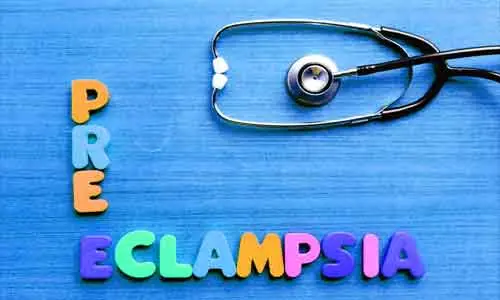- Home
- Medical news & Guidelines
- Anesthesiology
- Cardiology and CTVS
- Critical Care
- Dentistry
- Dermatology
- Diabetes and Endocrinology
- ENT
- Gastroenterology
- Medicine
- Nephrology
- Neurology
- Obstretics-Gynaecology
- Oncology
- Ophthalmology
- Orthopaedics
- Pediatrics-Neonatology
- Psychiatry
- Pulmonology
- Radiology
- Surgery
- Urology
- Laboratory Medicine
- Diet
- Nursing
- Paramedical
- Physiotherapy
- Health news
- Fact Check
- Bone Health Fact Check
- Brain Health Fact Check
- Cancer Related Fact Check
- Child Care Fact Check
- Dental and oral health fact check
- Diabetes and metabolic health fact check
- Diet and Nutrition Fact Check
- Eye and ENT Care Fact Check
- Fitness fact check
- Gut health fact check
- Heart health fact check
- Kidney health fact check
- Medical education fact check
- Men's health fact check
- Respiratory fact check
- Skin and hair care fact check
- Vaccine and Immunization fact check
- Women's health fact check
- AYUSH
- State News
- Andaman and Nicobar Islands
- Andhra Pradesh
- Arunachal Pradesh
- Assam
- Bihar
- Chandigarh
- Chattisgarh
- Dadra and Nagar Haveli
- Daman and Diu
- Delhi
- Goa
- Gujarat
- Haryana
- Himachal Pradesh
- Jammu & Kashmir
- Jharkhand
- Karnataka
- Kerala
- Ladakh
- Lakshadweep
- Madhya Pradesh
- Maharashtra
- Manipur
- Meghalaya
- Mizoram
- Nagaland
- Odisha
- Puducherry
- Punjab
- Rajasthan
- Sikkim
- Tamil Nadu
- Telangana
- Tripura
- Uttar Pradesh
- Uttrakhand
- West Bengal
- Medical Education
- Industry
Novel biomarkers may help diagnose late-onset preeclampsia

Researchers have discovered two novel biomarkers called FKBPL and CD44 which have the potential to change the way the Preeclampsia is managed .The researchers say the two biomarkers are particularly useful for diagnosing cases of late-onset preeclampsia, between the second and third trimester, a period that currently lacks reliable biomarkers.
The research has been published in the Journal of Clinical Endocrinology and Metabolism.
Preeclampsia is a leading cardiovascular complication in pregnancy lacking effective diagnostic and treatment strategies.
It is a devastating disorder that occurs very suddenly in the second half of pregnancy and causes severe health problems for both mother and baby. Preeclampsia can cause high blood pressure and organ failure in mothers and lead to preterm births and even stillbirth.
Senior author, Dr Lana McClements from the University of Technology Sydney, said the biomarkers can be used to diagnose and assess the risk of getting preeclampsia in both early and late pregnancy, "in women who otherwise appear healthy".
"There are two main types of preeclampsia: early-onset preeclampsia diagnosed before 34 weeks of a pregnancy and late-onset preeclampsia diagnosed from 34 weeks onwards," Dr McClements said.
"The vast majority of the current screening and monitoring strategies are focused on early-onset preeclampsia, which comprises only 10-15% of all preeclampsia cases, whereas late preeclampsia has been largely neglected," she said.
" The biomarkers allow the prediction of irregular placenta or maternal vascular function, which are key underlying causes of preeclampsia.
"This could lead to the early diagnosis and prevention of severe preeclampsia and associated complications including death, therefore also giving insight into disease mechanisms and possible treatment targets," Dr McClements said.
The research also has potential to enhance the development of therapeutics to treat preeclampsia because the increase in one of the biomarkers, FKBPL, can be inhibited by mesenchymal stem cells potentially stopping the development of preeclampsia.
" This is why we are so excited by the discovery. In addition to their use in diagnosis, FKBPL and CD44 also show potential as drug and cell therapy targets of emerging treatments for preeclampsia, which offers hope for a future cure to this terrible disorder," Dr McClements said.
For further reference log on to:
Dr Kamal Kant Kohli-MBBS, DTCD- a chest specialist with more than 30 years of practice and a flair for writing clinical articles, Dr Kamal Kant Kohli joined Medical Dialogues as a Chief Editor of Medical News. Besides writing articles, as an editor, he proofreads and verifies all the medical content published on Medical Dialogues including those coming from journals, studies,medical conferences,guidelines etc. Email: drkohli@medicaldialogues.in. Contact no. 011-43720751


